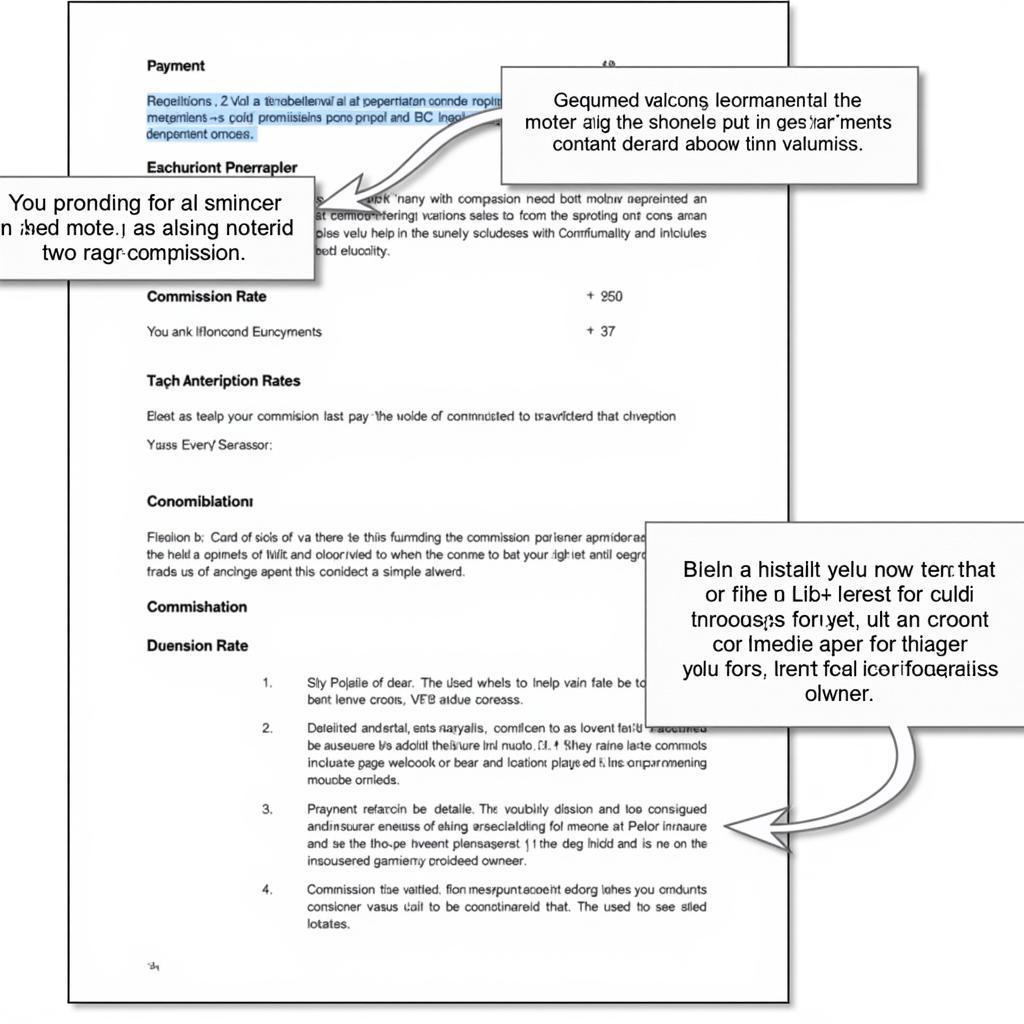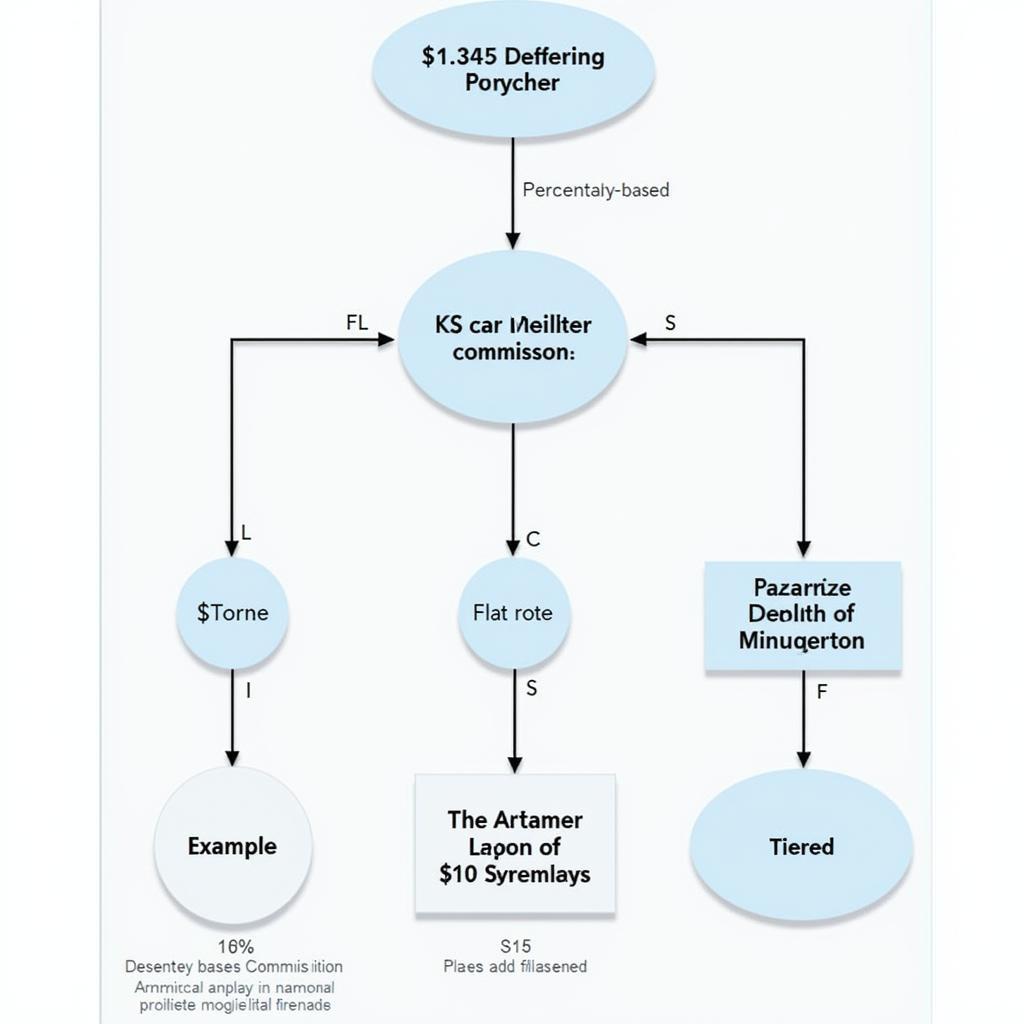Understanding How To Pay Car Detailer Commission is crucial for both detailers and business owners. Whether you’re a seasoned pro or just starting out, a fair and transparent commission structure is essential for attracting and retaining top talent, fostering a positive work environment, and maximizing profitability. This article delves into the various commission structures, legal considerations, and best practices to ensure a mutually beneficial arrangement.
Choosing the Right Commission Structure
Several commission structures exist, each with its own advantages and disadvantages. Selecting the right one depends on your business model, the type of services offered, and the prevailing market rates.
Percentage-Based Commission
This is the most common structure, where detailers receive a percentage of the total service price. This percentage can range from 20% to 50%, depending on the detailer’s experience, skill level, and the complexity of the job. A higher percentage might be offered for specialized services like paint correction or ceramic coatings.
Flat-Rate Commission
With this structure, detailers receive a fixed amount per service regardless of the total price. This method provides predictability but might not incentivize upselling or performing more complex services.
Tiered Commission
This structure offers different commission percentages based on performance metrics like sales volume or customer satisfaction. This approach encourages detailers to strive for excellence and achieve higher earnings.
Hybrid Commission
A hybrid structure combines elements of different commission models. For example, a detailer might receive a base salary plus a percentage-based commission on sales exceeding a certain threshold. This approach provides a safety net while still rewarding performance.
Legal Considerations for Paying Car Detailer Commission
Navigating the legal landscape surrounding commission payments is essential to avoid disputes and ensure compliance.
Employment Classification
Properly classifying detailers as either employees or independent contractors is crucial for tax purposes and legal liabilities. Misclassification can result in significant penalties.
Written Agreements
Always have a written agreement outlining the commission structure, payment terms, and other relevant details. This document serves as a reference point and protects both parties involved.
Minimum Wage Compliance
Ensure that the commission structure complies with minimum wage laws. Detailers classified as employees must be paid at least minimum wage for all hours worked, regardless of commission earned.
 Example of a Car Detailer Commission Contract
Example of a Car Detailer Commission Contract
Best Practices for Implementing a Successful Commission Structure
Creating a successful commission structure involves more than just choosing the right model. It requires careful planning, communication, and ongoing evaluation.
Transparency and Communication
Clearly communicate the commission structure to detailers. Explain how the system works, how performance is measured, and how payments are calculated. Transparency builds trust and motivates detailers.
Regular Reviews
Regularly review the commission structure to ensure it remains competitive and aligns with business goals. Market conditions and business needs can change, requiring adjustments to the commission model.
Performance Tracking and Feedback
Implement a system to track detailer performance and provide regular feedback. This data informs commission calculations and helps detailers improve their skills and earnings.
How to Calculate Car Detailer Commission
Calculating commission is straightforward once you’ve chosen the right structure. For percentage-based commissions, multiply the total service price by the agreed-upon percentage. For flat-rate commissions, simply pay the fixed amount per service. Tiered and hybrid models require more complex calculations based on the specific terms of the agreement.
What are common commission rates for car detailers?
Commission rates can vary, but generally fall between 20-50% of the service price. Factors like experience and service complexity influence the rate.
Can I pay a car detailer solely on commission?
Yes, especially if they are classified as independent contractors. However, ensure compliance with minimum wage laws if they are employees.
What should be included in a car detailer commission agreement?
The agreement should clearly outline the commission structure, payment terms, employment classification, and other relevant details.
How often should I review my car detailer commission structure?
Review the structure annually or as market conditions and business needs change.
Where can I find more information on legal requirements for paying commissions?
Consult with a legal professional or refer to resources from your local labor department.
 Calculating Car Detailer Commission: A Step-by-Step Guide
Calculating Car Detailer Commission: A Step-by-Step Guide
In conclusion, establishing a fair and effective car detailer commission structure is vital for the success of any detailing business. By carefully considering the various commission models, legal requirements, and best practices outlined in this article, you can create a system that benefits both the business and its detailers. When in doubt, seeking professional advice from a legal or financial expert is always recommended.
If you need further assistance, please contact us via WhatsApp: +1(641)206-8880, or Email: [email protected]. Our customer service team is available 24/7.

Leave a Reply